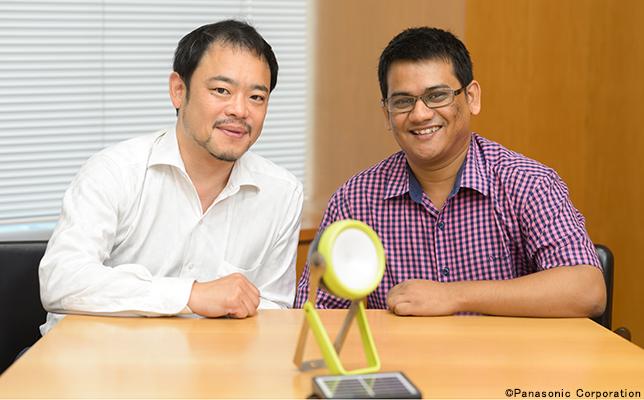Solar Lanterns Helping Students on the Path to University: e-Education Bangladesh
e-Education Bangladesh offers educational lessons by DVD for students in poor villages. Many have passed the entrance exams at some of the best universities in the country. Co-founder Matin Skeikh Maheen spoke with us about solar lanterns and their activities. (Interview date: August 24, 2016)
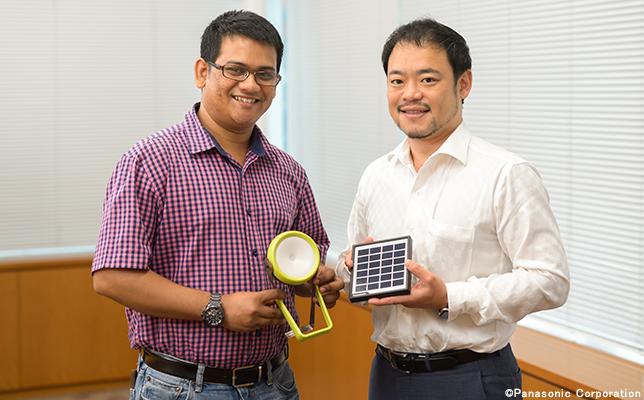
Distributing solar lanterns to rural high schools
Maheen: We distributed them to 50 schools, mainly high schools in three rural areas, a few hours by car or boat from the capital of Dhaka, including my hometown of Chandpur. They are all in poor areas.
Maheen: Bangladesh's electrification rate is about 55 to 60%, but people in areas where we recently distributed lanterns live under particularly poor conditions, with frequent blackouts, and many homes have no electricity to begin with. Blackouts often occur about 30 minutes after students start studying at home and they have no choice but to carry on using kerosene lamps.
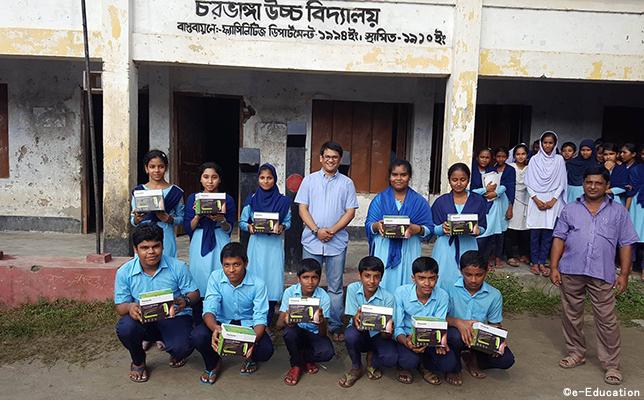
Okuda: It must be difficult to make progress when you have no idea when light will be available. How is each high school using the solar lanterns?
Maheen: Good grades, homes without electricity, and poor households. Students chosen based on these criteria are able to take the solar lanterns home, where they are used for studying and charging cell phones of family members. Also, the solar lanterns are kept at libraries and schools for use there.
Okuda:It's wonderful that they are being used effectively. How are people reacting?
Maheen:I got nothing but "So GREAT!" I visited several homes and they were thrilled that they could now do their precious studies longer, for their future. In one home, five children were studying together by the light of a solar lantern. Panasonic is famous now in the areas where the lanterns were distributed!
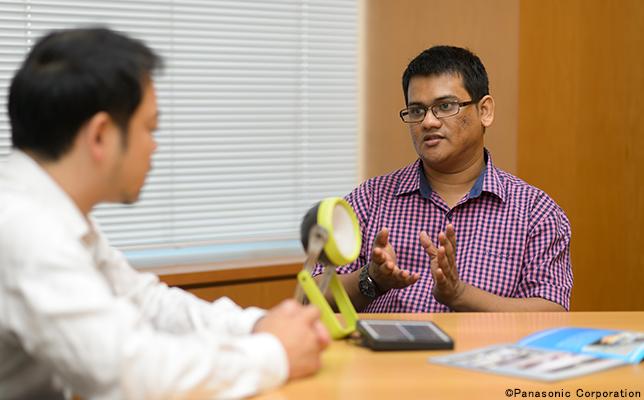
Using DVD lessons to prepare for university entrance exams
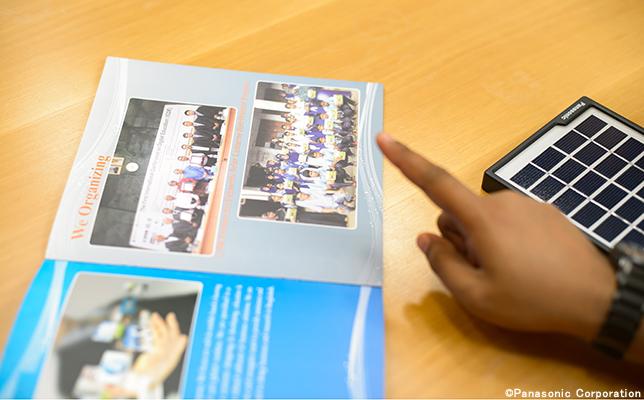
Maheen: Yes. They are rural public high schools that incorporate our DVD classes. There are currently about 100 partner schools and 60,000 students in total. Video education using recorded lectures of famous teachers is remarkably effective. Students had once given up on university because they had no one to teach them but they are now starting to take on the challenge of university entrance exams. We also have four schools we operate directly where we provide six months' support to study for the exams. Every year, we have about 400 students, and 2,400 have taken university entrance exams in the past six years. Most of these students have been accepted and got the opportunity to go to university.
Maheen:When I was a student, I studied very hard and was admitted to the University of Dhaka. It was the first time that someone had been accepted from my village. However, ever since e-Education Bangladesh classes were introduced to my village, eight students from there have passed the entrance exams, and today 50 students who used e-Education are studying at the University of Dhaka
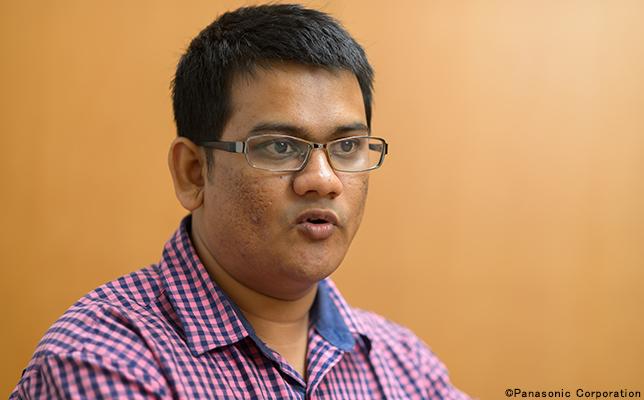
Maheen: Exactly. It is important to break the poverty cycle through education. In Bangladesh, students who have graduated from university, from top universities particularly, are able to find good employment. Although the completion rate for elementary and middle schools is high at more than 90%, only 12% move on to university. Support for students to advance to higher education should help many escape from poverty in the next 20 years. Okuda: And it would be nice if more and more young people take up the work of creating a brighter future for children, like you are doing now.
"Very small, but high social impact"
Maheen: When I was studying for university entrance exams, my dream was to study until 1 a.m. However, fuel for kerosene lamps was expensive, not to mention that it was also hazardous to my health, so I could only use it for two hours at most. With solar lanterns, you can study for four or five hours straight. If you can study properly, you can pave your future. A teacher at one of the high schools that received solar lanterns said, "It looks very small, but its social impact is very high," and I couldn't agree more.
Okuda: Small but high social impact. That is exactly what we are trying to achieve through our solar lantern donations.
Maheen: Solar lanterns do not require fuel like kerosene lamps, so they also bring significant financial savings for families. The solar lanterns are making not only students smile but families and teachers too. Going forward, we would like to research what kinds of changes have resulted from replacing kerosene lamps with solar lanterns. We will report on the results in the next 3 or 4 months.
Okuda: I wish the best of luck to students using the solar lanterns to study for university entrance exams, and I look forward to continuing to work with you so that more students can study under the light.
